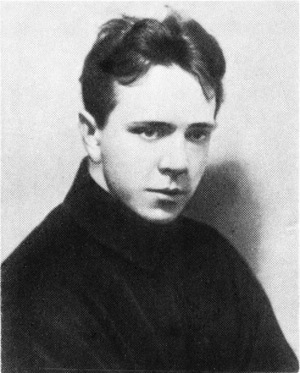The conception and evolution of Chekhov‘s method. 3
In Brief: In the context of the Russian theater of early 20th century, M. Chekhov could be considered to be one of the most prominent drama actors of that period. He played a significant role in the formation of the modern theatrical tradition. But M. Chekhov’s career in theater theory and pedagogy relates to much broader contexts of Western Europe and USA.
The nephew of a playwright Anton Chekhov - Mikhail Chekhov (1891-1955) is known in the history of modern theater not only as an actor but also as a director. His most important legacy is an acting method he developed during his pedagogical practice. It became a part of international theater and cinema industry and was considered to be an effective example of actor’s training system. M. Chekhov's personality is directly related to the formation of Lithuanian National Theater – the director worked for two years during an interwar period in Kaunas where he had trained a group of theatricals who were unofficially working in the style of M. Chekhov during the Soviet Union. Today, dozens of M. Chekhov centers are working in Europe and USA where his method is being systematically and consistently studied adapting it to new requirements of contemporary performing arts. Series of articles dedicated to Chekhov’s method reveal the originality of his acting theory, introduces to the main tools of this actor and director, his creative mechanisms and the design principles of organic “theater of tomorrow.”

